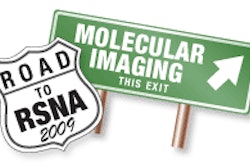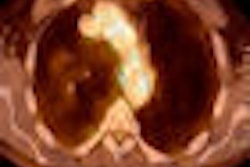On a roll-call vote of 400-17, the U.S. House of Representatives last night approved the American Medical Isotopes Production Act (HR 3276) to help fund production of molybdenum-99 (Mo-99) in the U.S. and gradually eliminate the export of highly enriched uranium.
The legislation allocates $163 million to support projects for the production of molybdenum-99 without using highly enriched uranium. It also stipulates that other medical isotopes, including iodine-131 and xenon-133, be produced as byproducts of the molybdenum-99 fission production process.
The U.S. Department of Energy would use the funds to support private-sector and/or research-sector projects to produce Mo-99. In addition, the legislation prohibits the export of highly enriched uranium from the U.S. for medical isotope production seven years after the bill becomes law.
The legislation now heads to the U.S. Senate for consideration.
Speaking with AuntMinnie.com, Dr. Michael M. Graham, president of SNM, described the bill as "landmark legislation," adding that he was gratified by the wide margin of approval. "That suggests that Congress is really on board for the need for domestic isotope production. Hopefully, it implies that the Senate will pass it without too much delay," he said.
Graham said he sees no "significant roadblocks" to Senate approval, but how soon the Senate could consider and approve the legislation depends on other issues, such as healthcare reform.
Graham said one important element of the bill is its support for iodine-131 and xenon-133 production. "Xenon-133 isn't used much anymore. I don't know that we would miss that too much," he said. "Iodine-131, however, is critical in treating thyroid patients. The shortage of I-131 hasn't been as acute as molybendum-99, because demand isn't quite as high with I-131 and the half-life is longer, but as these reactors age, we will see a shortage of I-131."
U.S. Rep. Edward Markey (D-MA), chairman of the House Energy and Commerce Committee's subcommittee on energy and the environment, and Rep. Fred Upton (R-MI), the ranking member of the subcommittee, led the legislation to the House floor.
Currently, the U.S. must rely on foreign sources for Mo-99; there are no U.S.-based producers. Over the past several years, scheduled maintenance and unexpected temporary closures of nuclear reactors around the world have created medical isotope shortages for nuclear medicine practitioners.
Dr. Michael Graham, Ph.D., president of nuclear medicine society SNM of Reston, VA, hailed the bill as "landmark legislation for patients and all Americans." In a written statement, Graham said this "important legislation will bring us one step closer to solving this chronic problem."
Such shortages have been exacerbated with reactors shutting down in Canada and the Netherlands earlier this year. Subsequently, the Canadian government announced that it would no longer produce medical isotopes as of 2016.
Atomic Energy of Canada (AECL) expects to spend approximately $70 million ($67 million U.S.) to repair its 52-year-old National Research Universal (NRU) nuclear reactor in Chalk River, Ontario, which has been offline since May due to a major water leak.
If repairs go as planned, AECL will have its NRU reactor online again in the first quarter of 2010.
By Wayne Forrest
AuntMinnie.com staff writer
November 6, 2009
Related Reading
House committee passes Mo-99 supply bill, October 26, 2009
Mo-99 supply bill passes House subcommittee, October 21, 2009
AECL: Chalk River repair will cost $70M, October 20, 2009
Coalition urges Congress to act on Mo-99, July 29, 2009
Markey bill would fund U.S. isotope production, July 28, 2009
Copyright © 2009 AuntMinnie.com




















